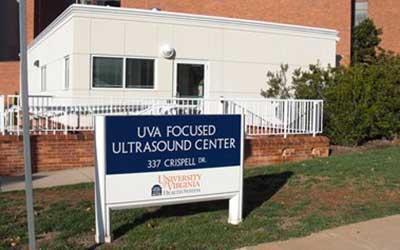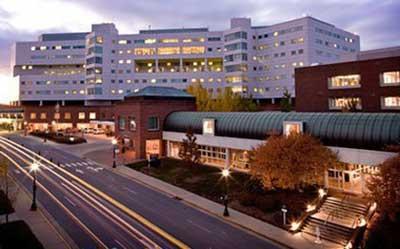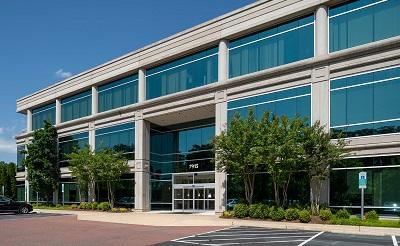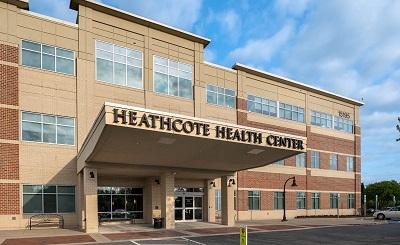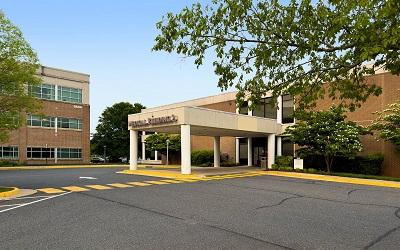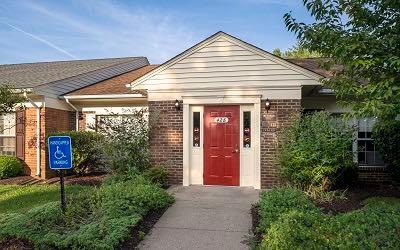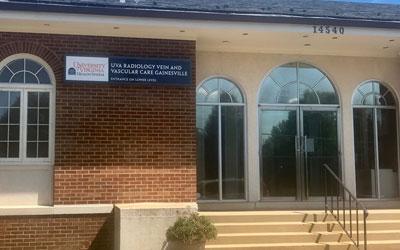Uterine Fibroids Treatment Options
Make an Appointment
For the Charlottesville area:
For Northern Virginia:
For Culpeper:
Pain or unusual bleeding during your period could be a sign of uterine fibroids. They don't usually cause symptoms or need treatment. But if they do, you want to find the best uterine fibroid treatment options available.
Fibroids are growths in the wall of your uterus. They aren't cancer (they are benign). The growths may be as small as an apple seed or as large as a grapefruit. As many as 2 out of 3 women have them by age 50.
At UVA Health, you'll find a range of treatment options. Not every option is right for every patient. Our experts will work with you to figure out the best treatment for you.
Uterine Fibroid Treatment at UVA Health
Pain, discomfort, bleeding: Fibroids can hurt your body and your lifestyle. We have options to get you to better.
Our fibroid treatments include:
- Endometrial ablation
- Focused ultrasound
- Hysterectomy
- Medications
- Myomectomy
- Uterine artery embolization
- Medicines that reduce the size of fibroids or only treat the symptoms
Uterine Fibroid Clinic Overview
Our expert radiologists and gynecologists work with you to find the best treatment for your individual symptoms.
DANA L. REDICK: Uterine fibroids are incredibly common condition. Anywhere from maybe 30 up to 50% of women have fibroids.
ALAN MATSUMOTO: They are benign growths of the uterus. That's a condition that can affect the woman's work life, social life, self image, and the ability to carry on their normal daily activities.
DANA L. REDICK: The common symptoms people complain of are bleeding. Usually their periods are heavier or longer, or they have bleeding between periods. They may also have some symptoms of their bladder where they feel like they're having to go all the time. Some people have more pain and difficulty with intimate contact or sexual function.
We also have women who have called bulk symptoms. Now certainly, other things can cause bleeding problems. Other things can cause bulk symptoms. Other things can affect your bladder. A general guideline is well-trained to manage fibroids, and many women can seek care locally. But one of the really neat things about our Uterine Fibroid Treatment Center is that it's a multi-disciplinary clinic. And what that means is that we have physicians who are radiologist, and physicians who are gynecologist.
ALAN MATSUMOTO: Because we work closely together, our knowledge and our levels of experience can complement each other to allow a patient to gain much greater insight in a single setting, so that they can ask questions specific to each one of us.
DANA L. REDICK: You get that team approach. You get someone thinking through all the different options to give you what's going to fit your symptoms and goals the best.
ALAN MATSUMOTO: We have all the technology to allow us to provide the full service range from magnetic resonance guided focus ultrasound-- there are fewer than 50 sites across the United States-- to robotic surgical techniques to hormonal manipulation. So we are one of the institutions that not only has all the technology, but we have a team of physicians that really have partnered to allow a patient to have very personalized care. Fibroids are very common, but a patient's situation is very individual.
[MUSIC PLAYING]
Uterine Fibroid Surgery Options
Surgery can remove fibroids and treat your symptoms. But traditional surgery uses big cuts. Open (traditional) surgery can result in a long, painful recovery.
At UVA, we can offer some alternative methods. With smaller cuts, ultrasound, and video technology, we can do same-day procedures that don’t cause the same risks and complications.
Learn more about minimally invasive gynecologic surgery.
Choosing to Wait & Watch
Your best option may be to wait and see how your condition progresses, especially for:
- Women with mild symptoms
- Those near menopause
- Women who plan to have children
During this time, we watch your fibroids to see how quickly they may grow. Lifestyle or dietary changes can help reduce symptoms. We may also prescribe medicine for your symptoms that don't directly treat the fibroids. If symptoms continue, treatment may be the answer.
Hormones
Some hormonal medications, like birth control pills, can help with symptoms of fibroids. Some of these medicines can also reduce the size of your fibroids.
Why Did I Get Fibroids?
Uterine fibroids are very common. It's not clear why people get them. If you're Black, you may be more likely to have them. Often, they're found when you're getting a routine pelvic exam.
Fibroid Symptoms
Most women don't have symptoms from fibroids. Whether or not you get symptoms may depend on the size and location of the fibroids. Symptoms can include:
- Pain or pressure in your pelvic area
- Heavy bleeding, strong cramping, or clots during your period
- Long periods or bleeding in between your periods
- Pain during sex
- Problems with urination or constipation
- Bloating or swelling in your abdomen
- Lower back or leg pain
- Problems getting pregnant
- Miscarriages
